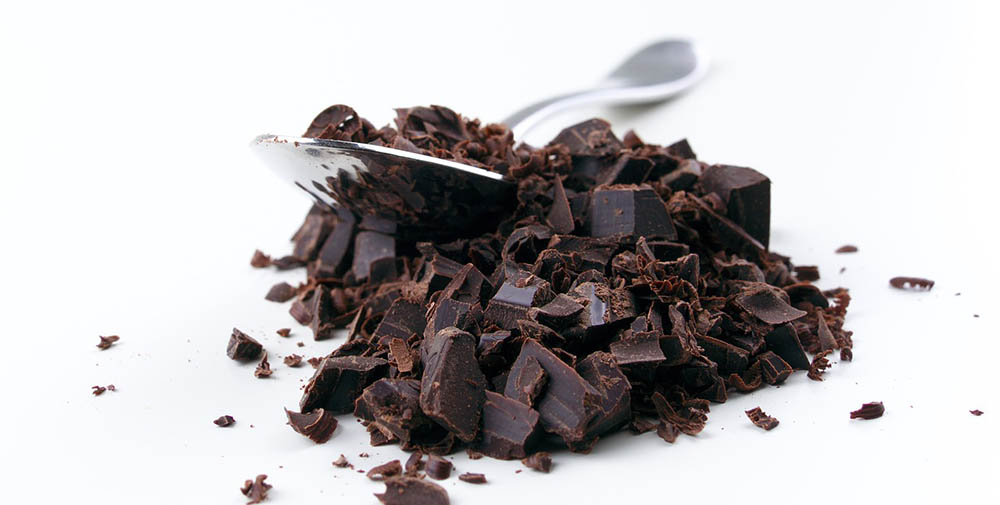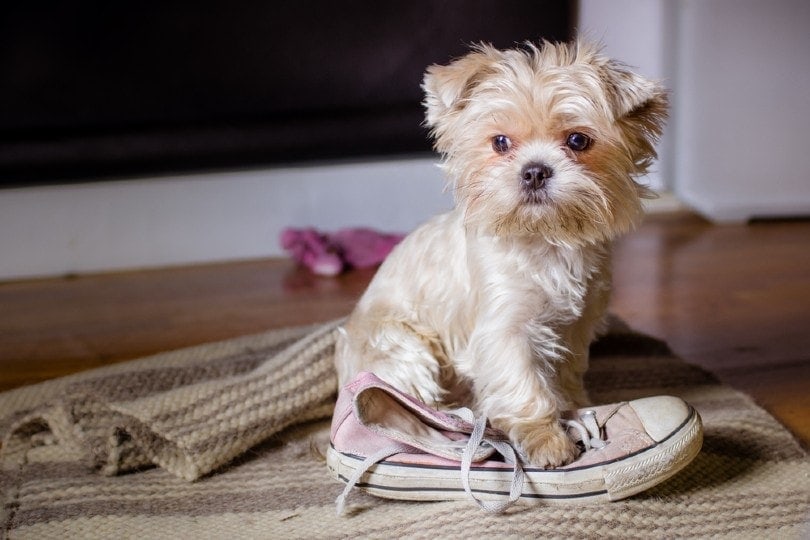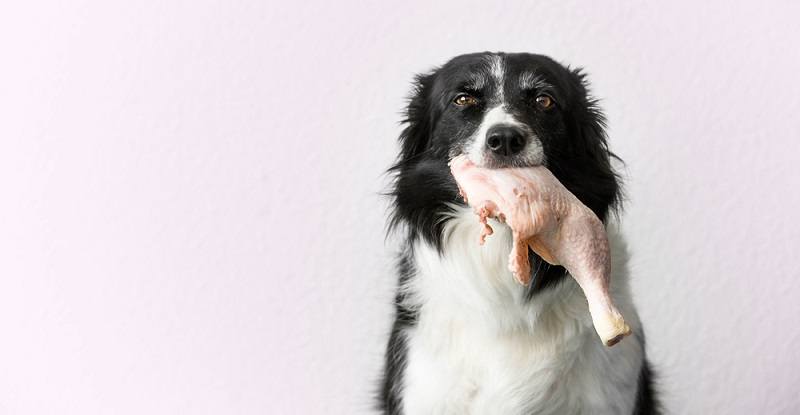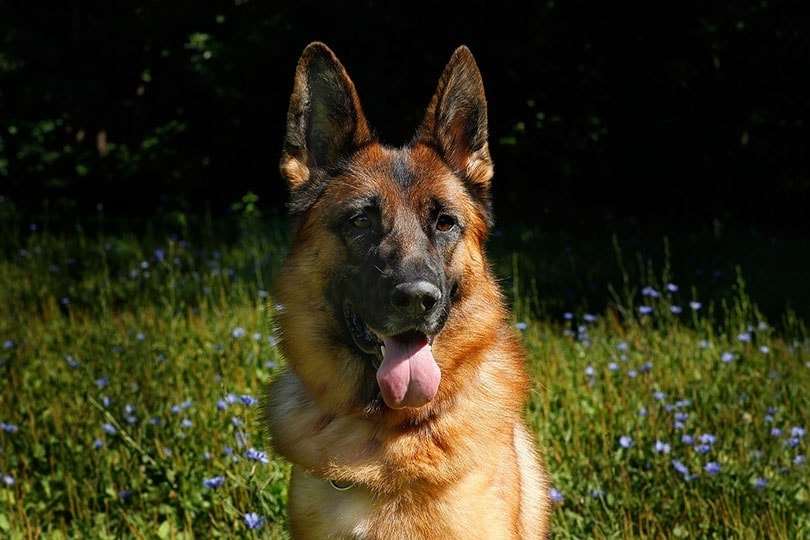Height:
25 – 32 inches
Weight:
85 – 115 pounds
Lifespan:
10 – 12 years
Colors:
White with badger, gray, reddish-brown or tan markings
Suitable for:
Families, House with a fenced yard
Temperament:
Stoic, Stubborn, Calm, Protective, Gentle, Smart, Independent
The Great Pyrenees is a purebred dog recognized by the AKC and lives up to its name of ‘great,’ both in size and in temperament. They belong to the Working Group and were bred to watch over and protect livestock, and they carry that behavior into their household.
The Great Pyrenees are known for their regal yet kind expression and their majestic stance. They are large dogs that can average 100 pounds, although much of that can be found in their thick double coats. They are usually all white and sometimes have badger (patches of color found at the base of the tail and on the head), gray, tan or reddish-brown markings.
 Great Pyrenees Puppies – Before You Buy…
Great Pyrenees Puppies – Before You Buy…
The Great Pyrenees is a very mellow breed that isn’t terribly excitable and is healthy and robust, with a large dog’s average lifespan. They are a challenge to train due to their independent nature, which also affects their sociability as they are very reserved towards anyone and anything outside of their family.
What’s the Price of Great Pyrenees Puppies?
A Great Pyrenees puppy’s price can range from $800 to $3000 from a breeder and $300 to $600 through a rescue group. Responsible breeders charge more than disreputable ones, but you’re guaranteeing that you’ll be receiving a healthy and happy puppy that has been socialized and well cared for. Adopting a puppy or dog from a rescue group will support the group, and you’ll be rescuing a dog and giving it a second chance at a happy life.
Finding a Great Pyrenees isn’t difficult as many breeders can be found all over the world. It’s essential to find a responsible and reputable breeder as you want to avoid puppy mills at all costs.
- Meet the breeder in person: You can use video chat so you can observe the breeder and their dogs (and your puppy) if it isn’t possible to visit their location. Do the dogs seem happy and healthy, and does the breeder appear to have a good relationship with them?
- Ask many questions: A good breeder will welcome your many questions about their dogs and puppies. A responsible breeder wants their puppies in loving and happy homes and should answer your questions openly and honestly. And always remember that there’s no such thing as a stupid question.
- Meet the puppy’s parents: Having the opportunity to meet your potential puppy’s parents will give you an idea of how your puppy’s size, appearance and temperament will turn out as an adult.
- Get the medical history: You should be able to have access to the breeder’s dog’s full medical background.
If you want to adopt a Great Pyrenees, there are many rescue groups found worldwide that are discoverable with quick internet searches. Some rescue groups are devoted to the breed, such as the National Pyr Rescue, which rehomes the Great Pyrenees throughout the U.S. and Canada.
 3 Little-Known Facts About the Great Pyrenees
3 Little-Known Facts About the Great Pyrenees
1. The Great Pyrenees was bred to be independent.
They were bred for looking after flocks of sheep in the Pyrenees mountains and spent a lot of time alone, making them very independent dogs.
2. The coat of the Great Pyrenees is tangle and dirt resistant.
They have dense double coats that are weatherproof and surprisingly easy to groom.
3. The Great Pyrenees are night owls.
They were bred to look after flocks of sheep throughout the night while everyone was asleep, protecting them from predators. This makes them naturally nocturnal, which is helpful in a guard dog.
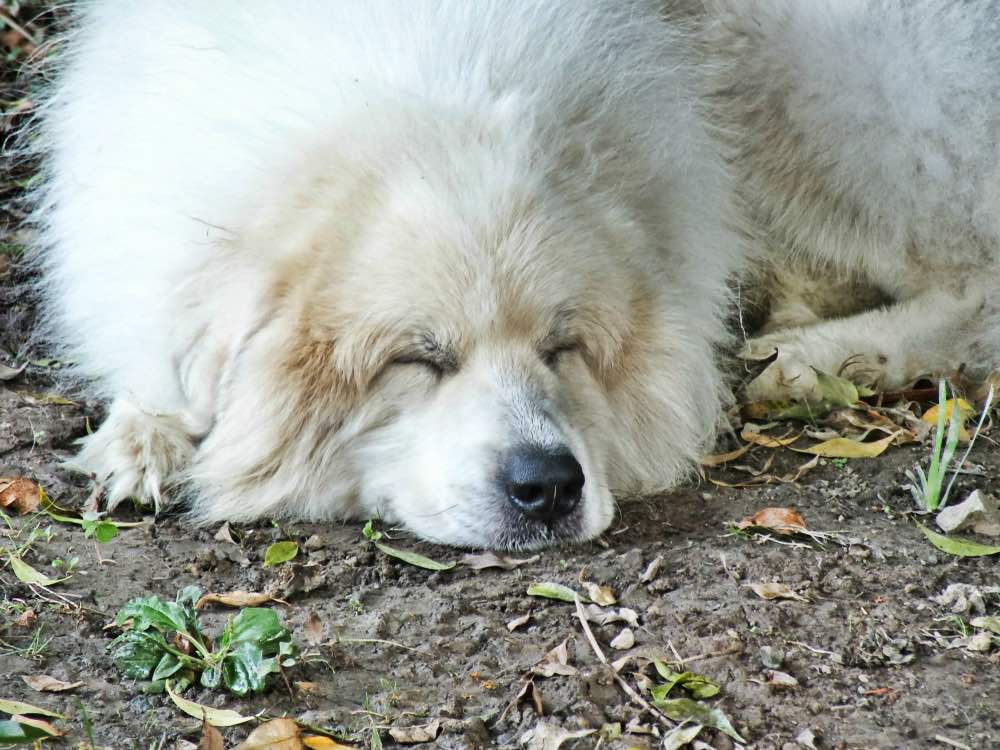
Temperament & Intelligence of the Great Pyrenees
The Great Pyrenees are very placid and loyal dogs that are highly intelligent. The side effect of this intelligence and their guarding instincts makes them stubborn and highly independent.
They are wonderful companions that love spending quiet time with their families inside and appreciate calm and predictable daily routines. They are wary of strangers and that, combined with their protective natures, means training and socializing them as puppies is crucial.
Are These Dogs Good for Families?
The Great Pyrenees make an amazing family dog as they are very patient and gentle with children, but they aren’t terribly playful. The Great Pyrenees is a loving and devoted dog that will protect everyone in the household with strength and dignity.
- Related Read: 20 Friendliest Dog Breeds
Does This Breed Get Along with Other Pets?
The Great Pyrenees is reserved with any animal it doesn’t know but will get along very well with pets within the household. They were bred to guard livestock and consequently will guard all pets that are part of the family.
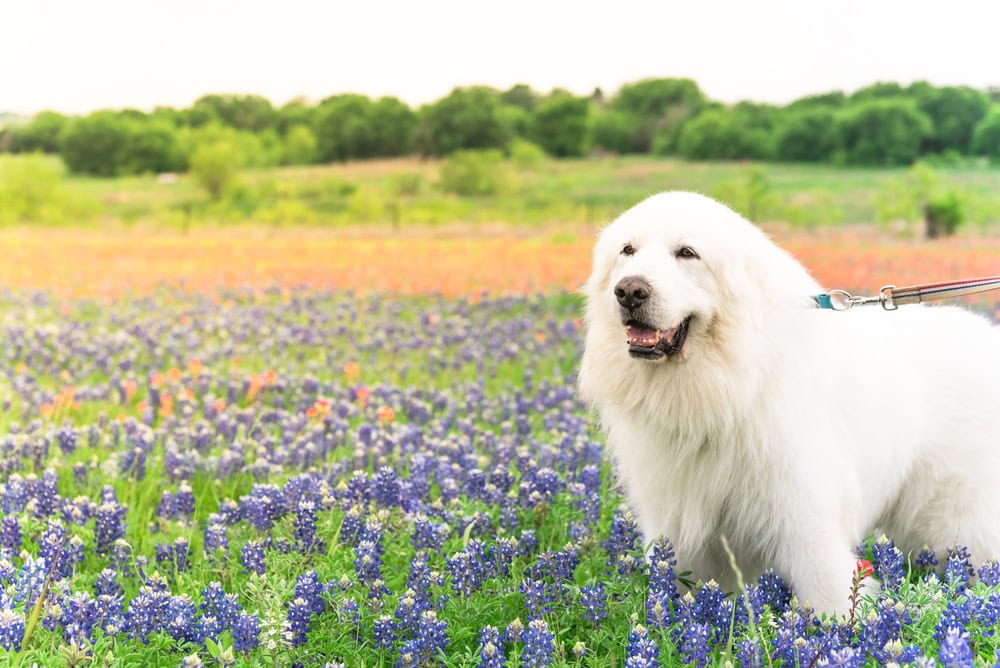
 Things to Know When Owning a Great Pyrenees:
Things to Know When Owning a Great Pyrenees:
Food & Diet Requirements
While they are very large dogs, the Great Pyrenees don’t seem to eat as much as other dogs their size. However, you should follow the dietary guidelines for most large breeds. Be sure to shop around for high-quality dry dog food and follow the instructions on the food bag. Always check with your vet if you have any concerns about your dog’s health or weight.
Exercise
While the Great Pyrenees is not a very energetic dog, they require a moderate amount of exercise. They will need long daily walks in addition to activities that will help keep them busy. Like most dogs from the Working Group, if they are bored, they will resort to destructive behavior and would do well with activities such as cart-pulling and obedience trials.
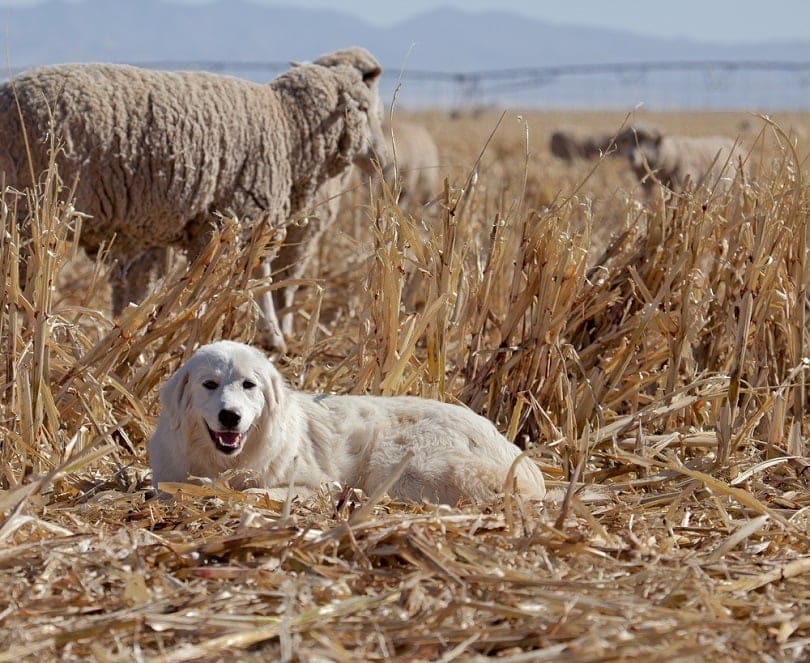
Training
Training can be a challenge with the Great Pyrenees because of their independent natures. They need a lot of patience throughout the training process, as most obedience training will be met with indifference. Positive reinforcement, combined with consistent training, socialization, and puppy training classes, will help you raise a confident and loving dog.
Grooming ✂️
As previously mentioned, the Great Pyrenees has a thick double coat resistant to dirt and tangles, which makes brushing a much easier chore. However, they shed like crazy, so brushing once a week should help with the excess hair. If you brush them frequently enough, you won’t need to give them a bath often (usually no more than 3 or 4 baths a year), but be sure to use a good quality dog shampoo.
Other regular grooming habits should include cleaning their ears, brushing their teeth, and trimming their nails.
Health and Conditions
Your vet will check your dog’s eyes and skin and check X-rays and run blood and urinalysis tests in addition to the usual physical exam to check for any of these health problems.
 Male vs. Female
Male vs. Female
The male Great Pyrenees is bigger and heavier than the female. The male can be 27 to 32 inches in height, whereas the female can be 25 to 29 inches. The male can weigh 100 to 115 pounds, and the female might weight 85 to 100 pounds.
If you decide to have your dog spayed or neutered, spaying the female dog is a more challenging operation and, therefore, a more expensive surgery than neutering is for the male. Recovery time also takes a little longer for the female, but the final outcome will ensure that you have a dog that is less aggressive and much less likely to run away. It also has the advantage of warding off any potential future health issues.
Lastly, some believe that the male dog is usually more instinctively aggressive and less affectionate than the female, but there are debates about this. Your dog’s personality and temperament are generally determined by the training and socialization it received as a puppy and how you continue to treat it throughout your dog’s adulthood.
 Final Thoughts
Final Thoughts
The Great Pyrenees is a beautiful and noble dog. They are loyal, devoted, and loving family pets that will protect their family with determination and courage. Their gorgeous thick, white coats are self-cleaning, and they are calm dogs, especially while indoors.
Finding the right dog for your family is essential, and the Great Pyrenees will make a fantastic dog for the right family. If you are looking for a mellow and sweet-natured guardian, the Great Pyrenees will be the perfect new addition to your household and family.
Featured Image Credit: CT70, pixabay

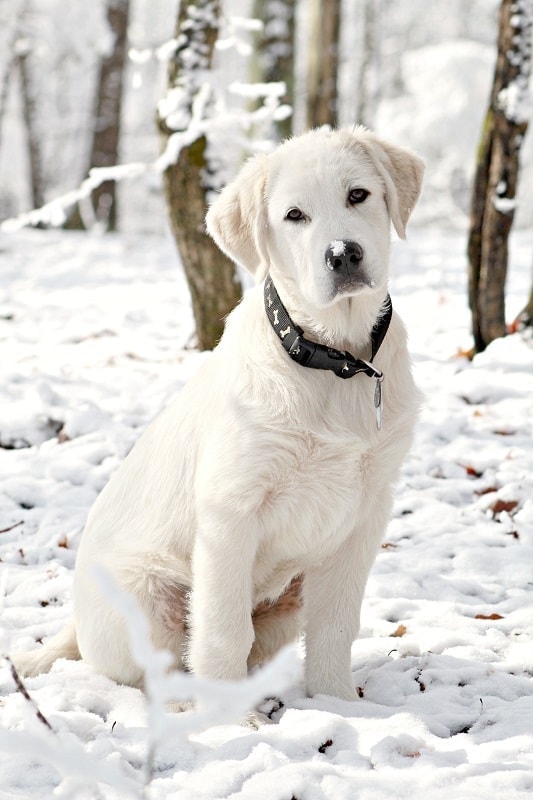
 Great Pyrenees Puppies – Before You Buy…
Great Pyrenees Puppies – Before You Buy… 3 Little-Known Facts About the Great Pyrenees
3 Little-Known Facts About the Great Pyrenees Things to Know When Owning a Great Pyrenees:
Things to Know When Owning a Great Pyrenees: Male vs. Female
Male vs. Female Final Thoughts
Final Thoughts